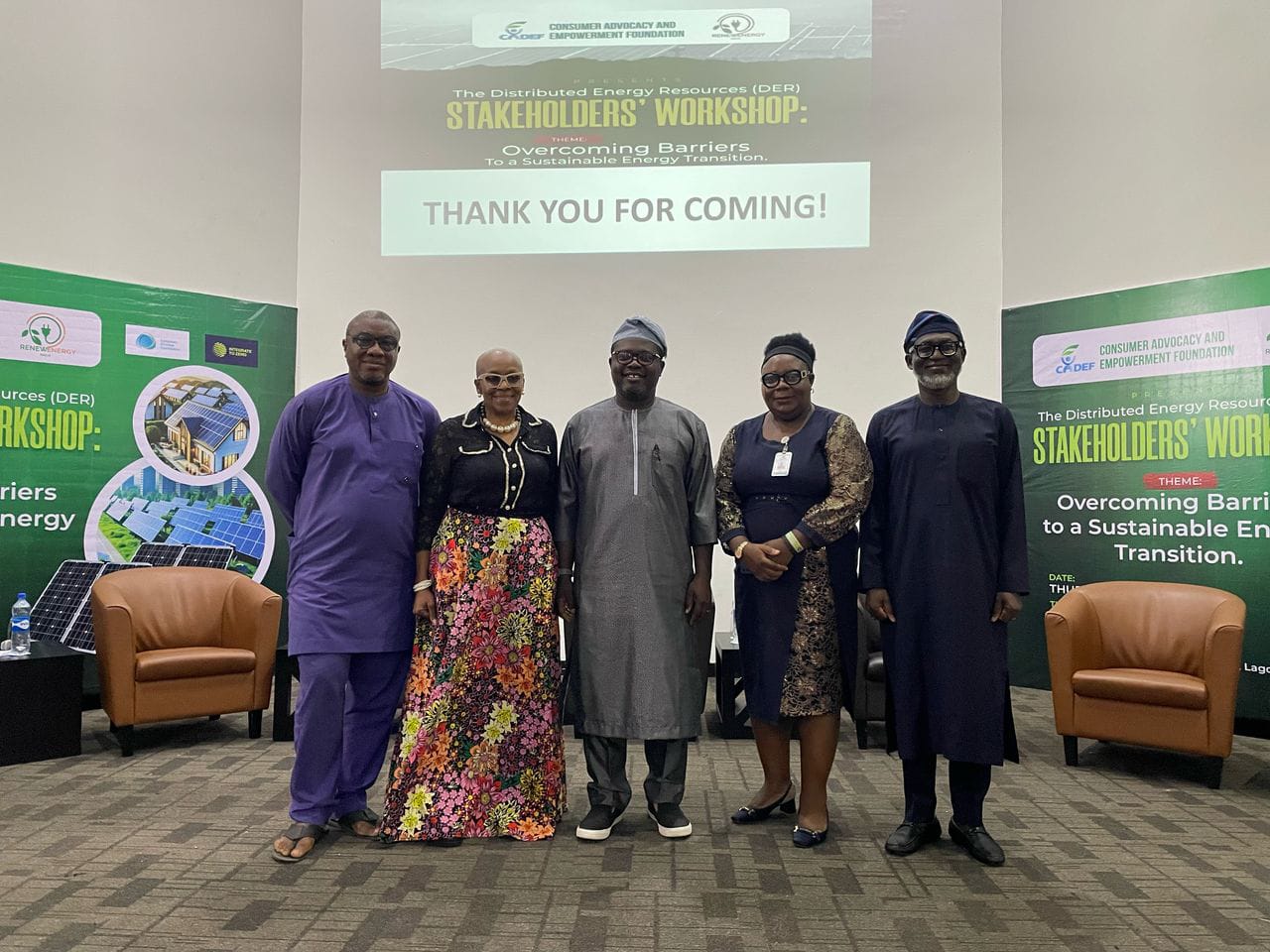This is contained in a statement signed by Dr Ejike Ndiulo, head of Corporate Communications, Air Peace, on Wednesday in Lagos.
According to Ndiulo, the decision is necessary because NiMet is the agency responsible for issuing CNH (Current Nowcast of Hazardous Weather) reports, critical for safe landings, especially during this season of heavy rainfall and thunderstorms.
He said without these reports from the control tower, flight safety could not be guaranteed.
“As a safety-first airline, we have chosen to act responsibly by suspending operations until NiMet resumes full service.
“We understand this may cause inconvenience, and we sincerely apologise. Passengers will be contacted with updates and options for rescheduling,” he said.
The staff of NiMET on Tuesday commenced an indefinite strike over the condition of service and other demands.
News
Port Concessionaires Emptying National Treasury-NAGAFF
National Association of Government Approved Freight Forwarders (NAGAFF) has called for a review comprehensive review of agreements with concessionaires at the seaports with a view to determining their effectiveness.
NAGAFF said that absence of enabling laws to protect the nation’s interest during and after the 2006 seaports concession programme have turned the sector into a haven for capital flight.
It would be recalled that the federal government had embarked on the concession of its ports with expectations that the concession would boost socio-economic development.
Chief Eugene Nweke, president, NAGAFF however told Nigeria CommunicationsWeek that the concession is creating more problems than it is solving.
Nweke alleged that billions of naira are carried out of Nigeria daily while lamenting that the figures could not be estimated because certain government agencies are colluding with the concessionaires.
The NAGAFF boss decried the uncontrolled increase of cost of clearing goods at the nation’s ports occasioned by the concession regime, but without the needed efficient services by the port concessionaires.
“What spurs this capital flight is that the private operators must recoup the money they pay to NPA and NIMASA. Even the Central Bank of Nigeria (CBN) cannot estimate the amount lost. As at today, only the Nigeria Customer Service (NCS) can tell how much is made from the ports, but they will never tell the public the whole truth. The ports are dying. Our ports have turned open cheque for capital flight and the issue needs urgent attention,” he said.
Recently at a half-year Ministerial briefing, Senator Idris Umar, minister of Transport commended the port concessionaires for investing some $925 million in cargo handling equipments and terminals development between 2006 to March 2013.
Reacting to the Minister’s presentation, Nweke said, when compared with what obtains in other climes, it becomes a mockery, “let’s consider and borrow a leave from Weifang port (managed by the government of China), located in the Shandong province in China where the ports authority has concerted, signed to invest a whooping sum of USD$1.6 Billion to be expended in 3 yrs (2014 – 2017) just to raise its capacity to handle over 50 million metric tons (MT) of cargo per annum.
In a written response to the minister’s presentation, Nweke, stated that the clamour for the review of the ports Concession Agreements entered into with the private operators since 2006 depicts an urgency to right the inadequacies noticed in the agreements.
In the views of most port users, “the Nigerian Ports Concession experience appears to be nurtured mostly on a political interest rather than for the collective economic interest of the people”.
“A cursory look into the Concession Agreements entered between Bureau for Public Enterprises (BPE), the Nigerian Ports Authority (NPA) and different private port operators in 2006, speaks volume of an unstructured concession agreement that was hurriedly packaged, speedily concluded and signed into effect, without adequate consideration to evolving robust, prompt and sustainable economic benefits in the future.
“One major omission observed in most of the prevailing concession Agreements as structured by these Agencies of the Government, is the absence of a legal framework that would have ushered in and governed the regime of private ports operations, and the consequent effects of this omission continue to live with us, especially, the non-structuring of an official template for ports services tariff-settings and the non constitution of a commercial ports service regulator prior to or during the concession exercise,” he said.
Similar case with national networks as number of empty ducts, number of unutilized fiber, all underutilized due to no front end outflow” the ISPs said
ISPs argued that huge portion of ISP revenue goes towards Connectivity Charges and tower rentals, because, according to them international bandwidth rates are one of the highest in Nigeria compared to rest of the world, national long distance and metro network cost is exorbitantly high and tower rental cost is also much higher as compare to other developing countries because infrastructure providers have unique problems like power, theft and other security challenges.
News
Lagos Sets the Benchmark in Renewable Energy as CADEF Launches Transformative Platform

Against the backdrop of Lagos State’s proactive efforts to reform its electricity sector, the Consumer Advocacy and Empowerment Foundation (CADEF) has launched its ‘Renew Energy Nigeria’ platform, a nationwide initiative with potential synergies for the state’s ambitious energy goals.

Professor Chiso Ndukwe-Okafor, CADEF’s Executive Director, introduced the platform in Lagos, highlighting its aim to empower Nigerians with information and access to decentralized renewable energy (DER) solutions. “The launch of this platform marks a significant step towards democratizing access to information and resources within Nigeria’s burgeoning sustainable energy sector.”
The platform’s launch comes as Lagos State, under the Lagos State Electricity Law, is actively establishing a regulatory framework and attracting private sector investment. Kamaldeen Abiodun-Balogun, General Manager of the LSEB, detailed the state’s progress in creating a functional electricity market, ensuring payment security, and addressing infrastructure challenges. “This law enabled us to create policy documents and establish regulatory agencies to initiate the implementation of the Lagos electricity market,” he explained, adding that private sector involvement will be key in areas where existing Discos face performance issues.
Segun Adaju, a private sector player deeply engaged in the energy sector, lauded Lagos State’s leadership. “In all these, Lagos State is always setting the pace. Many of us in the private sector players like myself, we are also looking up to Lagos State to set the pace,” he said, also mentioning his work on the Centralized Renewable Energy Desk for the state government.
While acknowledging national-level challenges such as import restrictions and forex fluctuations as noted by Professor Ndukwe-Okafor: “The recent federal plan on restrictions on the importation of solar products and the fluctuation of forex rate have made clean energy solutions costly”, the focus on Lagos State’s progress suggests a promising local environment for DER adoption, potentially amplified by CADEF’s new platform.
The broader socio-economic context, as highlighted by Olumide Ajayi, “Over 40% of Nigerians do not have access to reliable electricity”, underscored the importance of initiatives like ‘Renew Energy Nigeria’ and the enabling policies being implemented in states like Lagos.
Professor Ndukwe-Okafor concluded with a powerful call to action. “This platform is not an isolated intervention. It is aligned with our ideal country’s national vision, the 30-30-30 initiative. Let us not build a solar future that only serves the wealthy. Let us democratize clean energy. Let us make it local, inclusive, and scalable.”
The launch of “Renew Energy Nigeria” marks a significant step towards a more sustainable and equitable energy future for Nigeria, driven by innovation, collaboration, and a commitment to empowering its citizens. The platform is now live and accessible to all Nigerians seeking reliable and clean energy alternatives
News
EFCC Secures Arrest Warrant for Six CBEX Promoters

A federal high court in Abuja has granted permission to the Economic and Financial Crimes Commission (EFCC) to arrest and detain six Crypto Bridge Exchange (CBEX) promoters over allegations of investment fraud to the tune of over one billion dollars.

Emeka Nwite, presiding judge, gave the order following an ex parte application moved by Fadila Yusuf, counsel to the EFCC.
In the application by the EFCC, the six suspects are Adefowora Olanipekun, Adefowora Oluwanisola, Emmanuel Uko, Seyi Oloyede, Avwerosuo Otorudo and Chukwuebuka Ehirim.
The commission sought an order of the court for a warrant of arrest of the defendants.
They also prayed the court for “an order remanding the defendants in the custody of the complainant/applicant pending the conclusion of investigation of the alleged offences and possible prosecution”.
Yusuf said that the defendants are at large and a warrant of arrest is required to arrest the defendants for proper investigation and prosecution of this case.
In the affidavit in support of the motion, the EFCC said preliminary investigation into the intel revealed that the defendants “using their company ST Technologies International Limited, promoted another company Crypto Bridge Exchange (CBEX) by making adverts and lured unsuspecting members of the public to invest crypto cryptocurrencies on the CBEX investment platform”.
The EFCC said the defendants promised an unrealistic return on investment of up to 100 percent.
“The victims were made to convert their digital assets into a stablecoin of USDT for onward deposit into the suspects’ crypto wallet,” Yusuf said.
“The victims were initially given full access to the platform to monitor their investment.
“Following the deposits valued at over $1 billion by the victims, the CBEX investment platform became inaccessible to them, and they could no longer withdraw from the investment made.
“The victims later discovered that the said scheme is a scam.
“During the course of investigation, it was discovered that the said ST Technologies International Limited, though registered with the Corporate Affairs Commission (CAC), it was not registered with the Securities and Exchange Commission (SEC) for investment purposes.
“It was also discovered during the investigation that the defendants had moved out of their last known address in Lagos and Ogun states.”
The anti-graft agency said obtaining a warrant of arrest was necessary in order to place the defendants on a watch list, enabling authorities to trace and apprehend the suspects to face the charges brought against them.
Nwite granted the request for a warrant of arrest and remand, adding that the order was necessary to enable the commission to apprehend the defendants and conclude its investigation.
“I have listened to the submission of the learned counsel for the applicant,” Nwite said.
“I have also gone through the affidavit evidence with exhibits thereto, along with the written address.
“I am of the view and I so hold that the application is meritorious.
“Consequently, the application is granted as prayed.”
Earlier in April, reports emerged that CBEX users could no longer withdraw their funds.
On Monday, angry investors stormed and looted the office of Smart Treasure (ST Team), an affiliate of CBEX, in Ibadan, Oyo State.
The EFCC recently confirmed receiving multiple complaints about the platform.
Dele Oyewale, the commission spokesperson, assured affected investors that efforts were underway to recover their funds.
News
Air Peace Suspends Flight Operations Nationwide


 E-Business2 days ago
E-Business2 days agoALX Nigeria Launches 2025 Ventures Incubator, Premieres Pan-African “Do Hard Things” Finale

 Telecom1 day ago
Telecom1 day agoMTN Appoints Egerton Idehen as Chief Broadband Officer

 General News1 day ago
General News1 day agoUBA Marks 75 Years of Excellence at 65th AGM

 Telecom1 day ago
Telecom1 day agoMTN Group Suffers Cyberattack

 Telecom1 day ago
Telecom1 day agoMTN Foundation Launches Skills Academy to Bridge Nigeria’s Digital Skills Gap

 Telecom1 day ago
Telecom1 day agoLegend Internet Plc Makes History as First Indigenous Telecom Firm on NGX

 E-Financial2 days ago
E-Financial2 days agoInsurance Bill Seeks Compensation for Customers of Failed Firms

 E-Financial2 days ago
E-Financial2 days agoFintechs Add $18m to New Tax Initiative


























